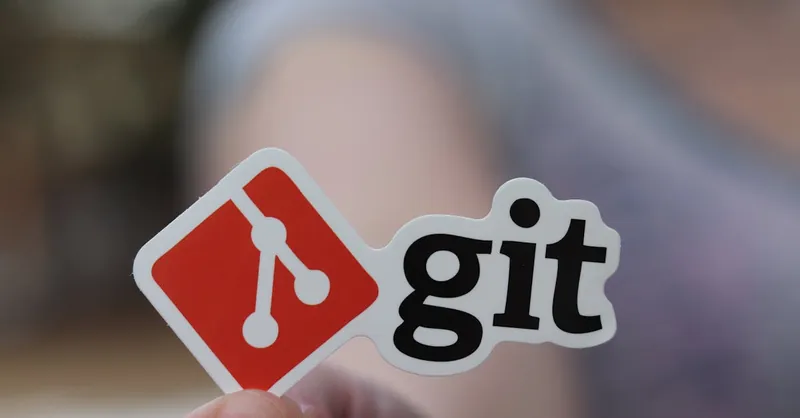Generate Affiliate Income Using Programming: Creative Passive Ideas
Category: Programming
Unlock Affiliate Income with Smart Programming
If you're a developer or tech-savvy individual seeking inventive ways to monetize your coding skills, you've landed in the right place. You already understand the power of programming and probably get how affiliate marketing can generate commissions, but what you want is a structured, actionable approach that leverages your programming strengths to build sustainable passive income streams. The challenge? Knowing exactly where to start, how to combine coding projects with affiliate programs effectively, and how to automate or scale the process beyond manual promotion. Other articles offer generic affiliate marketing tips that don’t tap into the coding side, leaving you wondering how to integrate APIs, build tools, or create content that truly converts.
This guide cuts through the noise with a tailored strategy for programmers, focusing on real projects you can build, tools to automate affiliate tracking, and programming-centric promotion methods. By the end, you’ll have an arsenal of creative ideas and best practices to generate affiliate income using programming skills uniquely suited to your expertise level. Keep reading to discover how to transform your programming knowledge into passive income that grows over time, with minimal ongoing effort.
- Unlock Affiliate Income with Smart Programming
- Understanding Affiliate Marketing Basics for Programmers
- Identifying Profitable Niches and Affiliate Programs Suited for Coding Projects
- Creating Value-Driven Content with Code: Combining Tutorials, Tools, and Demos with Affiliate Links
- Building Custom Affiliate Tools and SaaS Using APIs
- Automating Affiliate Link Management and Tracking with Code
- Leveraging Open Source Projects to Promote Affiliate Products: Strategies for Maintaining User Trust
- Using Data-Driven Programming to Optimize Affiliate Campaigns
- Monetizing Developer-Focused Platforms and Communities
- Scaling Affiliate Income Through Automation and Outsourcing
- Legal, Ethical, and Best Practice Considerations for Programmers in Affiliate Marketing
Understanding Affiliate Marketing Basics for Programmers
To effectively generate affiliate income using your programming skills, it’s crucial to grasp the technical fundamentals of affiliate marketing. At its core, affiliate marketing is a performance-based system where you earn commissions by promoting products or services through unique referral links. As a programmer, understanding how these links track user activity, process commissions, and report analytics empowers you to create smarter, automated solutions that outperform typical manual promotion.
Key Terms Every Developer Should Know
- Affiliate Link: A URL containing a unique identifier (often called an affiliate ID) that attributes clicks and sales to you.
- Commission Structure: How you get paid, commonly percentage-based (e.g., 10% of sales) or fixed per action (e.g., $5 per signup).
- Conversion: When a referred visitor completes the desired action—like a purchase or signup—that triggers your commission.
- Cookies: Small pieces of data stored on the user’s device to track referrals across multiple browsing sessions.
- Tracking Pixel: A tiny, invisible image embedded on confirmation pages to confirm conversions.
- API (Application Programming Interface): Allows your code to interact programmatically with affiliate platforms to retrieve clicks, earnings, and conversion data.
Common Commission Structures for Programmers to Leverage
Understanding the payout models lets you strategize which products and programs align best with your skills and audience:
| Commission Model | Description | Developer Angle |
|---|---|---|
| Percentage of Sale | Earn a set % of the purchase amount | Integrate with APIs to track dynamic product pricing and optimize promotions. |
| Pay-Per-Lead (PPL) | Fixed amount when a user signs up or submits info | Use automation to drive high-intent traffic to lead forms. |
| Pay-Per-Click (PPC) | Earnings per user click on your affiliate link | Build tools to increase qualified clicks or analyze click-to-conversion ratios. |
| Recurring Commissions | Earn on repeat subscriptions or memberships | Develop subscription dashboards or notification systems to monitor renewals. |
How Affiliate Tracking Works Behind the Scenes
Tracking is the backbone of affiliate marketing, ensuring you receive credit accurately. Programmers should be aware of methods commonly used:
- Cookie-Based Tracking: When a user clicks your affiliate link, a cookie stores your affiliate ID for a set time window (often 30–90 days). If the visitor buys within that window, the sale attributes to you.
- Fingerprinting and Server-Side Tracking: More advanced programs use fingerprinting techniques or server-side logic to track users even if cookies are disabled — crucial for reliable attribution.
- API and Webhooks: Many affiliate networks offer APIs or webhooks to fetch real-time performance data or receive event notifications, enabling you to build custom dashboards or automate payout calculations.
By mastering these foundational concepts and mechanisms, you can design and implement efficient, scalable affiliate projects that maximize revenue potential while minimizing manual monitoring. Next, you’ll learn actionable programming projects and automation tactics tailored specifically for these technical processes.

Image courtesy of Kevin Ku
Identifying Profitable Niches and Affiliate Programs Suited for Coding Projects
Selecting the right niche and affiliate programs is a critical step for programmers looking to generate passive income through affiliate marketing. To maximize your earnings, focus on niches that naturally align with your expertise and the interests of fellow developers, such as software development tools, cloud services, coding courses, API platforms, and productivity software. These areas not only offer lucrative commissions but also present ample opportunities to create value-added programming projects—like custom integrations, automated dashboards, or developer utilities—that resonate deeply with your target audience.
When evaluating affiliate programs, prioritize those with strong reputations, reliable tracking technology (including APIs and webhooks), and commission structures that reward recurring usage or high-value transactions. Some of the most developer-friendly programs include cloud providers (AWS, Azure, Google Cloud), SaaS tools with developer APIs, code hosting platforms (GitHub Marketplace), and educational platforms offering coding courses or certifications. By integrating your projects with these programs, you can build automated affiliate funnels that attract and convert highly qualified leads, ultimately enabling you to scale your passive income with minimal ongoing effort.
Pro Tips for Choosing Your Niche and Affiliate Program
- Match niche complexity with your coding skill level: Complex APIs or developer tools allow for technical content and projects that create natural conversion touchpoints.
- Look for recurring revenue models: Subscriptions or memberships in developer tools offer reliable, long-term income.
- Leverage trending technologies: Areas like AI APIs, DevOps platforms, and cybersecurity are rapidly growing and often have attractive affiliate offers.
- Check program terms and cookie durations: Longer cookie windows increase your chances to earn commissions from referred traffic.
- Research affiliate program support for automation: Programs offering robust APIs enable you to track sales and optimize promotions programmatically.
By aligning your affiliate strategy with coding-centric niches and robust programs, you set the stage for scalable passive income streams that capitalize on your technical strengths and the growing demand for developer-focused products and services.

Image courtesy of Markus Spiske
Creating Value-Driven Content with Code: Combining Tutorials, Tools, and Demos with Affiliate Links
To truly maximize your affiliate income using programming, creating content that provides real value to your audience is essential. Rather than just dropping affiliate links randomly, focus on delivering high-quality programming tutorials, custom tools, and interactive demos that solve specific problems or teach useful skills. When you embed affiliate links within this context, your audience naturally trusts your recommendations, boosting click-through rates and conversions.
How to Integrate Affiliate Links Seamlessly into Programming Content
-
Develop In-Depth Tutorials Featuring Affiliate Products
Create step-by-step guides that incorporate products or services you promote. For example, a tutorial on building a web app could include hosting platforms or APIs that you link to via your affiliate codes. This positions the affiliate product as an organic, helpful resource rather than an intrusive ad. -
Build Custom Developer Tools or Code Snippets
Use your coding skills to craft free developer utilities, plugins, or libraries that complement affiliate services. Include your affiliate links in download pages, documentation, or demo versions. This approach harnesses your programming expertise to provide tangible value while driving affiliate conversions. -
Showcase Interactive Code Demos and Case Studies
Interactive examples where users can test features of an affiliate tool (e.g., cloud APIs, SaaS platforms) make your content highly engaging. Accompany these demos with clear calls-to-action linking to affiliate signups, increasing both engagement and conversion probability.
Best Practices for Optimized Affiliate Content with Programming Focus
- Prioritize Relevance: Align affiliate links closely with the tutorial or tool topic to ensure visitors find them relevant and useful.
- Be Transparent: Clearly disclose affiliate relationships to maintain trust and comply with regulations.
- Leverage SEO Keywords Naturally: Incorporate high-value queries around programming tutorials and product reviews to attract organic search traffic primed to convert.
- Utilize Code Comments and Documentation: Place affiliate links in README files or inline comments of open-source projects to reach technically inclined users.
- Automate Link Management: Use scripts or CMS plugins to keep your affiliate links updated and track performance efficiently.
By combining your programming knowledge with targeted, value-driven content, you create a win-win experience: your audience gains actionable insights and useful tools, while you generate steady affiliate commissions. This integrated approach not only boosts your conversion rates but also establishes you as a trusted authority within coding communities, enhancing long-term passive income potential.

Image courtesy of ThisIsEngineering
Building Custom Affiliate Tools and SaaS Using APIs
Leveraging your programming skills to build niche-specific affiliate tools and SaaS products is a powerful way to generate passive income that scales effortlessly. By integrating affiliate products directly through APIs, you create innovative web apps, browser extensions, or plugins that solve targeted problems while embedding affiliate offers seamlessly. This proactive strategy not only adds genuine value for users but also drives consistent, automated commission revenue.
Step-by-Step Ideas for Developing Affiliate-Integrated Solutions
-
Identify a Pain Point in Your Niche
Start by understanding specific challenges or inefficiencies within your target market—whether it’s developers needing easier access to cloud cost monitoring, content creators requiring automated product recommendations, or entrepreneurs tracking affiliate earnings from multiple networks. -
Select Affiliate Programs with Robust APIs
Prioritize programs that offer developer-friendly APIs or webhook support. These enable you to fetch product catalogs, pricing, tracking stats, and user-specific affiliate links programmatically, allowing dynamic and personalized integration within your tool. -
Design a User-Centric Solution
Whether you’re building a web dashboard that aggregates affiliate analytics, a browser extension that automatically inserts affiliate codes into URLs, or a WordPress plugin that recommends affiliate products contextually, focus on simplifying user workflows and delivering actionable insights. -
Implement API Integrations for Real-Time Data
Use RESTful API calls to retrieve up-to-date product information, conversion data, or commission reports. Automate affiliate link generation and embed tracking parameters dynamically, ensuring users always share valid affiliate URLs without manual effort. -
Add Automation Features to Scale Revenue
Incorporate features like scheduled report emails, affiliate link rotators, or push notifications on affiliate offers and renewals. Automation reduces manual monitoring and enhances user engagement, resulting in higher conversion and retention rates. -
Promote Your Tool Through Targeted Channels
Launch your affiliate tool on developer forums, SaaS marketplaces, or relevant niche communities. Use SEO-optimized landing pages detailing how your solution simplifies affiliate marketing or product discovery, improving both organic traffic and user acquisition.
Examples of Profitable Affiliate Tools Programmers Can Build
- Cloud Cost Management Dashboards integrating AWS or Google Cloud affiliate programs to recommend savings plans or upgrades.
- Browser Extensions that auto-convert standard product links into affiliate URLs on ecommerce sites like Amazon or Shopify.
- WordPress Plugins that insert personalized affiliate product recommendations based on visitor behavior or content keywords.
- API Aggregators that compare features and pricing of competing SaaS tools with embedded affiliate links, empowering users to make informed purchase decisions.
- Email Automation Tools that integrate with affiliate networks to send timely promotion alerts or follow-up sequences to subscribers.
By combining API-driven development with affiliate marketing logic, you not only provide practical, efficient tools but also unlock recurring passive income sources tied directly to user engagement. This approach aligns perfectly with your technical expertise and the growing demand for automated solutions in affiliate marketing, positioning you for long-term success in monetizing your programming skills.

Image courtesy of RealToughCandy.com
Automating Affiliate Link Management and Tracking with Code
To truly scale your affiliate income streams as a programmer, automation is key. Instead of manually updating affiliate URLs, monitoring clicks, or analyzing conversions, you can leverage scripts, bots, and serverless functions to dynamically manage affiliate links, handle redirects, and collect granular analytics—all programmatically. This not only saves time but also increases accuracy and enables data-driven optimization of your campaigns.
Techniques for Dynamic Affiliate Link Management
-
Use URL Redirect Scripts
By coding redirect endpoints (e.g., with Node.js, Python Flask, or serverless functions such as AWS Lambda/Azure Functions), you can centralize affiliate link management. These endpoints intercept click requests, append tracking parameters, rotate between multiple affiliate IDs to split-test performance, or switch links if programs change—without having to update links across your content manually. -
Automate Link Insertion and Updates
Employ crawling or custom CMS plugins to parse your website content and automatically insert or refresh affiliate links based on your predefined patterns or product metadata. Scripts can regularly validate links to detect broken or outdated URLs, automatically replacing them with current affiliate URLs to maintain conversion integrity. -
Bots for Real-Time Link Optimization
Advanced automation bots can monitor click-through rates (CTR), conversion ratios, and commission payouts, dynamically adjusting link destinations or promotional tactics based on performance data. For example, you could implement A/B testing bots to rotate affiliate offers and identify top-performing links programmatically.
Collecting and Analyzing Affiliate Data Programmatically
- Serverless Analytics Trackers: Use lightweight serverless functions triggered by affiliate link clicks or conversion events to log user interactions. This decouples tracking from your main server and scales effortlessly without infrastructure concerns.
- Webhook Integration: Connect with affiliate network webhooks to receive instant notifications of sales, leads, or other conversions. Your code can then update your databases and dashboards in real-time, fueling automated reporting and commission forecasting.
- Custom Analytics Dashboards: Build web dashboards that aggregate raw affiliate data via APIs, visualizing key metrics like top-performing links, revenue per visitor, and geo-location data. Custom alerts can notify you when commissions hit thresholds or links underperform, allowing proactive campaign management.
By harnessing automation frameworks, API integrations, and serverless architectures, programmers can transform affiliate link management from a tedious chore into a smart, self-sustaining system. This boosts profitability by ensuring affiliate promotions remain accurate, personalized, and optimized based on live performance data—ultimately generating higher passive income with minimal manual intervention.

Image courtesy of olia danilevich
Leveraging Open Source Projects to Promote Affiliate Products: Strategies for Maintaining User Trust
Open source projects present a unique and highly effective avenue to promote affiliate products within developer communities while establishing credibility and trust. By incorporating affiliate references or sponsor links thoughtfully in popular repositories, you can generate passive income without disrupting the user experience or damaging your reputation as a developer. The key is to blend affiliate promotions seamlessly with genuine technical value, ensuring transparency and respect for the open source ethos.
Best Practices for Incorporating Affiliate Links in Open Source Projects
-
Place Links in Non-Intrusive Locations
Integrate affiliate or sponsor links in places like the README.md, CONTRIBUTING.md, or dedicated sponsorship sections rather than within core functional code to avoid cluttering the user’s workflow. This keeps the affiliate content visible but unobtrusive. -
Provide Clear Disclosures
Be transparent about affiliate relationships by adding disclaimers near the affiliate links. This builds user trust and adheres to legal requirements, reinforcing your integrity while encouraging ethical affiliate marketing. -
Align Affiliate Products with Project Goals
Recommend tools, services, or products that genuinely complement or enhance your open source project. For example, if your project relates to cloud infrastructure, linking to cloud providers’ affiliate programs makes the sponsorship feel natural and valuable. -
Use Badges and Sponsor Buttons
Include sponsor badges or buttons in your project documentation or GitHub repository headers that link to affiliate offers. These visual elements catch attention subtly and invite voluntary user clicks without imposing. -
Leverage GitHub Sponsors and Funding Mechanisms
Combine traditional affiliate links with GitHub’s native sponsorship features or Open Collective to provide users with multiple channels to support your work, enhancing monetization diversity. -
Automate Affiliate Link Updates
Use scripts or CI/CD pipelines to keep affiliate link URLs current and to manage tracking codes efficiently, especially in documentation files. This automation reduces maintenance overhead and ensures all referrals are properly attributed.
Why This Approach Works for Passive Income
Incorporating affiliate links in open source projects taps into a trusted, engaged developer audience actively seeking solutions. When affiliate products align with the project’s purpose and provide real value, users are more likely to convert. Furthermore, maintaining transparency and limiting promotional interference fosters long-term goodwill and repeat engagement, critical factors for sustainable affiliate revenue growth in programming communities.
By thoughtfully blending affiliate marketing strategies within open source repositories, developers create a symbiotic environment where community contributions and passive income not only coexist but thrive — all without compromising the open, collaborative spirit that drives software innovation.

Image courtesy of RealToughCandy.com
Using Data-Driven Programming to Optimize Affiliate Campaigns
Maximizing affiliate income isn’t just about embedding links; it requires a data-driven approach to continually refine and improve campaign performance. As a programmer, you have a distinct advantage: the ability to systematically collect, analyze, and act on affiliate data using analytics, A/B testing, and even machine learning algorithms to optimize conversions and revenue programmatically.
Harnessing Analytics for Smarter Affiliate Campaigns
By tapping into affiliate network APIs and tracking tools, you can gather granular data such as click-through rates (CTR), conversion rates, revenue per click, and customer behavior metrics. This data becomes the foundation for continuous optimization:
- Build custom dashboards that aggregate affiliate KPIs in real time, allowing you to monitor which links, pages, or products perform best.
- Segment traffic sources and audience demographics programmatically to tailor content and promotions to the highest-converting groups.
- Detect and react to trends or anomalies rapidly with automated alerts triggered by significant shifts in campaign metrics.
Implementing A/B Testing to Drive Higher Conversions
A/B testing—comparing different versions of landing pages, call-to-action buttons, or affiliate link placements—is a proven method for improving engagement and sales. Developers can:
- Automate the creation and rotation of test variants using scripts or feature flags integrated with your website or SaaS application.
- Use analytics APIs to collect performance data per variant, tracking conversions accurately through affiliate network reports or your own server-side events.
- Programmatically determine winning variants and deploy them dynamically with zero downtime, ensuring your audience always sees optimized content.
Leveraging Machine Learning for Predictive Optimization
Taking optimization a step further, machine learning models can analyze complex behavioral patterns across affiliate campaigns to predict which products or promotions will resonate best with specific user segments. You can:
- Use clustering algorithms to segment visitors based on interaction patterns and customize affiliate offers personalized to each cluster.
- Apply regression models to identify factors most influencing conversion likelihood and prioritize higher-impact promotional tactics.
- Implement reinforcement learning agents that dynamically adjust affiliate link placements and promotional messaging in real time to maximize long-term revenue.
Benefits of a Data-Driven Affiliate Strategy
- Greater Accuracy: Automated tracking and analysis reduce human error and provide a precise understanding of what drives conversions.
- Scalability: Once set up, data-driven systems can optimize thousands of affiliate links or campaigns simultaneously without manual intervention.
- Higher ROI: By focusing efforts on the best-performing content and offers, you improve your commission yield and minimize wasted traffic.
- Continuous Improvement: Data-centric feedback loops allow ongoing enhancements, making your affiliate marketing smarter and more profitable over time.
By leveraging your programming abilities to implement comprehensive analytics, A/B testing frameworks, and machine learning models, you transform affiliate marketing into a scientific, optimized process. This strategic edge enables consistent growth in passive affiliate income that adapts and scales with your digital presence.

Image courtesy of Kindel Media
Monetizing Developer-Focused Platforms and Communities
One of the most effective and ethical strategies for generating affiliate income as a programmer is leveraging developer-centric platforms and communities like Stack Overflow, GitHub, specialized forums, and newsletters. These channels provide direct access to engaged, technical audiences actively seeking solutions, making them ideal for distributing affiliate content that resonates and converts.
How to Use Stack Overflow and Developer Forums for Affiliate Promotions
While Stack Overflow and similar forums discourage blatant advertising, you can position yourself as a helpful contributor by:
- Providing thorough, problem-solving answers that naturally reference affiliate products or tools (e.g., coding libraries, cloud services) when relevant.
- Including affiliate links thoughtfully within extended explanations, ensuring the links add genuine value rather than appearing promotional.
- Participating consistently and building trust so your recommendations carry credibility, increasing click-through and conversion rates.
- Respecting community guidelines by disclosing affiliate relationships and avoiding spammy behavior, which preserves your reputation and keeps the traffic sustainable.
Leveraging GitHub for Affiliate Income
GitHub offers unique opportunities for integrating affiliate links through:
- README files and project documentation where you can recommend affiliate products such as IDE plugins, cloud services, or testing tools.
- GitHub Actions and Marketplace apps that embed affiliate offers in tooling workflows, providing value while generating passive commissions.
- Sponsor tabs and repository descriptions, which are excellent areas to place clear, transparent affiliate or sponsor links that support your open source work.
Newsletters: Personalized Affiliate Promotion to Developer Audiences
Developer newsletters remain a high-conversion channel due to their intimacy and targeted reach. To effectively monetize newsletters:
- Curate content that includes affiliate product recommendations intertwined with tutorials, case studies, or coding tips.
- Use tracking-enabled affiliate links and concise calls-to-action that encourage signups or purchases without overwhelming readers.
- Maintain honest, transparent messaging about affiliate partnerships, fostering trust and long-term reader engagement.
- Implement segment-based content personalization using automated scripts to serve the most relevant affiliate offers to different audience subsets.
Best Practices for Ethical and Effective Affiliate Content Distribution in Developer Communities
- Focus on value-first content that solves real problems or enhances developer workflows, rather than overt selling.
- Disclose affiliate links clearly to comply with legal standards and maintain ethical marketing practices.
- Avoid link dumping or irrelevant posting, which can lead to bans or community backlash.
- Engage genuinely with community members, answering questions and contributing insights beyond affiliate promotion.
- Use programmatic tools where possible to customize affiliate links and track performance across multiple channels for optimization.
By strategically tapping into developer platforms and communities with helpful, transparent, and technically relevant affiliate content, you can unlock reliable passive income streams while enhancing your authority and relationships within the programmer ecosystem. This approach ensures that affiliate marketing aligns naturally with your expertise, offering sustainable monetization without compromising integrity or user experience.

Image courtesy of cottonbro studio
Scaling Affiliate Income Through Automation and Outsourcing
To truly scale your affiliate income, relying solely on manual efforts and individual content creation limits your growth potential. As a programmer, the secret to expanding your affiliate reach lies in automating repetitive tasks through code and strategically outsourcing content creation or outreach to free up your time for high-impact projects. This dual approach enables you to systematically increase traffic, conversions, and commissions without a linear increase in workload.
Automating Repetitive Affiliate Marketing Tasks with Code
Automation transforms tedious, time-consuming affiliate tasks into streamlined, scalable processes. Key areas to automate include:
-
Affiliate Link Management
Use scripts or serverless functions to dynamically update, rotate, and redirect affiliate links across your websites and tools. Automating this process prevents broken links, supports A/B split testing of offers, and adapts link destinations based on performance data—keeping your affiliate promotions fresh and optimized. -
Content Scheduling and Publishing
Integrate automated workflows using APIs or headless CMS platforms (e.g., Contentful, Sanity) to schedule blog posts, social media updates, and newsletters embedded with affiliate links. Programmatically managing content calendars ensures consistent audience engagement and boosts SEO without manual intervention. -
Monitoring and Reporting
Develop custom dashboards or bots that aggregate affiliate analytics in real-time, sending automated alerts about traffic spikes or drops, commission milestones, and underperforming campaigns. This data-driven automation lets you react quickly and optimize ROI at scale. -
Email Marketing Sequences
Code automated drip campaigns personalized by user behavior, triggering targeted affiliate promotions at optimal times. Leveraging APIs from email platforms like Mailchimp or ConvertKit, you can ensure relevant affiliate offers reach segmented audience groups efficiently.
Outsourcing to Expand Content Creation and Outreach
Scaling beyond your coding capacity also means delegating content and promotional tasks. Thoughtful outsourcing improves output quantity and diversity, amplifying your affiliate footprint:
-
Hire Freelance Writers or Content Specialists
Engage experts to produce well-researched tutorials, reviews, or newsletters aligned with your affiliate products. Clear briefs and editorial standards ensure quality while freeing your time to focus on tool development and automation. -
Outsource Social Media Management and Outreach
Employ professionals to grow your social channels, engage with communities, and conduct influencer outreach campaigns that drive qualified traffic to your affiliate links. -
Use Virtual Assistants for Research and Link Management
Delegate routine tasks like competitor research, backlink monitoring, and affiliate link audits to virtual assistants. Program your scripts and tools to generate reports they can act on, creating a smooth collaboration loop. -
Leverage Guest Posting and Partnerships
Coordinate with guest writers or other bloggers to create and syndicate affiliate-rich content across broader networks, effectively multiplying your affiliate promotion with minimal extra effort.
By combining programmatic automation with strategic outsourcing, you build a robust affiliate marketing operation that grows exponentially rather than incrementally. This hybrid approach amplifies your ability to generate passive income through programming-driven affiliate projects—maximizing efficiency, reach, and scalability in your affiliate marketing business.

Image courtesy of Anna Nekrashevich
Legal, Ethical, and Best Practice Considerations for Programmers in Affiliate Marketing
When generating affiliate income through programming, understanding the legal and ethical landscape is crucial not only for compliance but also for maintaining your audience’s trust and long-term credibility. As affiliate marketers, especially those integrating affiliate links programmatically, you must ensure transparency, respect privacy, and adhere to relevant regulations to build sustainable passive income streams.
Disclosure Requirements: Transparency is Key
The Federal Trade Commission (FTC) and similar authorities worldwide mandate that affiliates disclose their financial relationships with companies they promote. Programmers embedding affiliate links in websites, tools, or content should:
- Include clear and conspicuous disclosure statements near affiliate links or within the content context, such as blog posts, tutorials, or software documentation.
- Use simple language like “This post contains affiliate links, which means we may earn a commission if you purchase through these links at no extra cost to you.”
- Automate disclosure placement when possible—such as appending disclosure footers programmatically on pages containing affiliate links—to ensure consistent compliance across your digital assets.
Adhering to these disclosure best practices not only avoids legal penalties but also fosters user trust, which is essential for long-term affiliate success.
Privacy Laws and Data Protection
Incorporating affiliate marketing often involves tracking user behavior through cookies, pixels, and APIs. Understanding and complying with privacy regulations like GDPR (General Data Protection Regulation), CCPA (California Consumer Privacy Act), and other data protection laws is non-negotiable. Key considerations include:
- Inform visitors about tracking technologies and obtain explicit consent where required before setting tracking cookies related to affiliate links.
- Provide transparent privacy policies detailing what data you collect, how it’s used, and with whom it is shared (including affiliate networks).
- Avoid unauthorized data sharing or employing overly intrusive tracking methods that could alienate users or lead to regulatory penalties.
Leveraging server-side tracking and anonymized analytics can help respect privacy while maintaining robust affiliate performance insights.
Maintaining Credibility with Your Audience
Your reputation as a programmer and content creator hinges on authenticity. Overusing affiliate promotions or pushing irrelevant products can erode trust and reduce conversions. To maintain credibility:
- Recommend only products and services you genuinely believe in or have tested yourself, ensuring your affiliate offers align with your audience’s needs.
- Avoid deceptive marketing practices like hiding affiliate links or cloaking redirects without disclosure—transparency builds a loyal following more likely to convert.
- Engage with your audience by sharing your honest experiences, including pros and cons, which strengthens your authority and encourages repeat visits and recommendations.
By integrating legal compliance, privacy respect, and ethical marketing into your affiliate programming projects, you create a sustainable foundation for passive income. This approach not only maximizes SEO value by fostering user engagement but also ensures your affiliate marketing efforts withstand scrutiny and maintain long-term viability.

Image courtesy of Antoni Shkraba Studio
